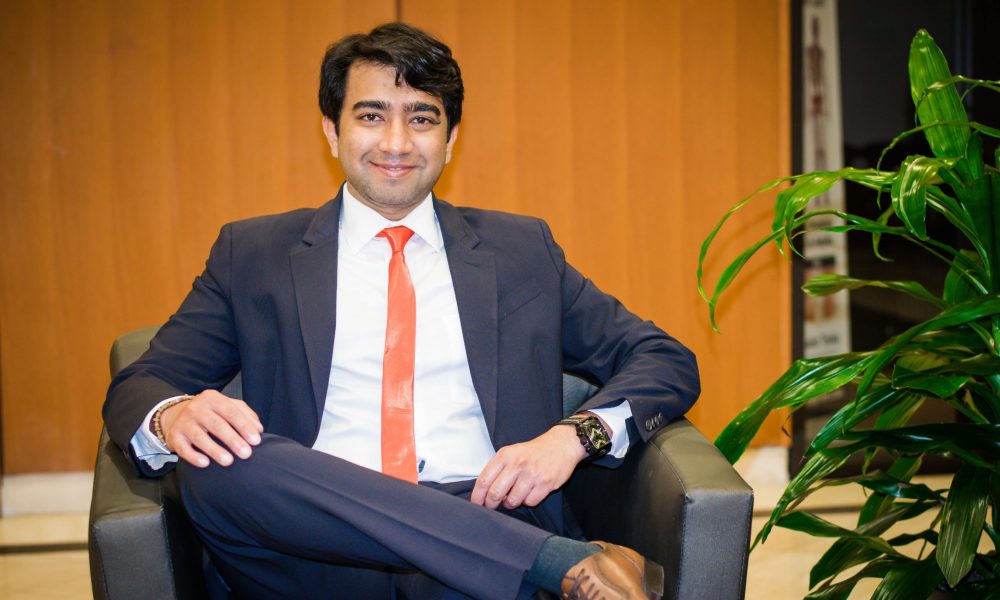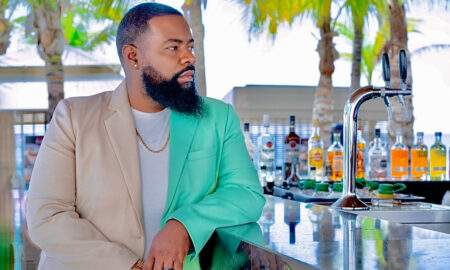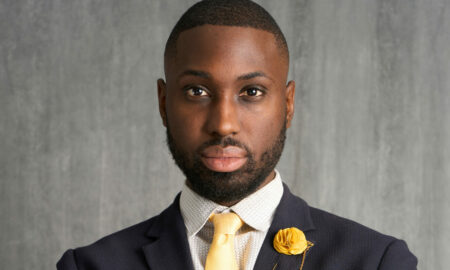

Today we’d like to introduce you to Arafat Ali Hashwani.
Thanks for sharing your story with us Arafat Ali. So, let’s start at the beginning and we can move on from there.
In 2016, I started Hashwani Neurology & Neurophysiology Clinic (HNNC) to connect and make a difference in a community where I grew up. I have never wanted to practice medicine by the numbers. Many people associate the Hippocratic Oath of “doing no harm” with the field of medicine, but I make an additional oath to my patients—I treat them as I would my own family. This may seem like a huge responsibility, but it’s something I embrace the moment a patient checks into our clinic. In practice, this means listening intently, not only to uncover vital medical information but also to treat each person with dignity and respect.
After completing my Chemical Engineering undergraduate degree at the University of Houston and my medical studies at Texas Tech University Health Sciences Center (TTUHSC) in Lubbock, I chose to become a Neurologist and had the vision to start my own neurology practice. In order to attain the diverse skills needed to handle a variety of complex neurological diseases, I completed a unique Clinical Neurophysiology fellowship, with combined EEG and EMG training. And I recognize that neurological diseases not only affect the patients themselves but also have a profound impact on their loved ones.
Even though I am on call 24/7, I also take time to teach on the national and international levels, leading USMLE courses in Neurology and Neuroanatomy. Remaining a lifelong teacher and learner keeps me up to date and sharpens my ability to relay complex medical information in plain language, something that directly improves my patients’ care and the quality of life.
We’re always bombarded by how great it is to pursue your passion, etc – but we’ve spoken with enough people to know that it’s not always easy. Overall, would you say things have been easy for you?
No, it has not been a smooth road at all! In fact, I have experienced many challenges along this journey—cultural, personal, social, and financial—to get to where I am today. However, I have been extremely blessed with good guidance throughout my journey—from family, friends, community, and my faith.
My family came from a strict Pakistani culture. We were middle-class and arrived in Texas in search of the American dream. My father established his small perfume business, while my mother took up responsibilities as primary caretaker and partial breadwinner. Their road was not easy—my father worked every day for 17 years, only taking Christmases off, while my mother juggled between jobs and took care of three children. My siblings and I all had to learn a new language and culture. But my parents progressed through hardship with such joy and focus that I started to see obstacles as blessings in disguise.
Indeed, my parents’ approach to struggle has left an indelible mark on me. After residency, I could’ve gone the more established route of joining an existing practice, but to practice medicine that fully mirrored my values, I had to set off on my own. This meant learning aspects of administrative tasks that doctors usually leave to their administrators—compliance, billing, business development, and marketing. After just a year, the clinic has flourished through word of mouth and we are excited to reach more patients.
So let’s switch gears a bit and go into the Hashwani Neurology & Neurophysiology Clinic (HNNC) story. Tell us more about the business.
I am a Neurology/Clinical Neurophysiology provider. Although there are many debilitating ailments, those that affect the brain are especially challenging because many mysteries remain. These complexities impact the precision of diagnoses and the effectiveness of treatment, making the relationship between patient and neurologist much more long-term and collaborative. I don’t simply impose my will onto a patient in a cookie-cutter way: it’s a team effort.
To watch Parkinson’s patients regain their ability to walk, speak, and feed themselves represents why I chose to become a neurologist. Likewise, I find it especially rewarding to work on cases involving seizures and epilepsy, memory impairment and dementia, various types of headaches, carpal tunnel syndrome, neuropathy, and dizziness etc. I also perform procedures such as Nerve Conduction Studies (NCS), Electromyograms (EMG), Electroencephalograms (EEG), ambulatory EEG’s, Deep Brain Stimulation (DBS) programming, occipital nerve blocks, and Vagus Nerve Stimulation (VNS) programming etc.
What are you most proud of as a company?
Each and every day, my team and I work not just for ourselves and our dreams but to give our patients the opportunity to improve their quality of life and pursue their American dreams. I am most proud that my clinic reflects this same level of commitment.
In June 2015, I completed my residency and my family got to see me become a Neurologist. It was a true milestone, as I was the first doctor in our extended family. In September 2016, I started my own Neurology practice and it was a humbling moment for me and my family to celebrate years of hard work.
But unexpectedly, exactly four Sundays later, my father passed away in his sleep. The proximity of these two events, one filled with pride and the other with tragedy, has given me the conviction to live a life in full service to others. This is what continues to drive me every day.
What sets you apart from others?
Since I completed a dual EEG/EMG fellowship, I am one of the few neurologists in the Sugar Land area who performs both procedures and can treat problems of both the peripheral and central nervous systems. Our practice is likewise dedicated to providing care to a wide variety of patients, from young adults to geriatrics.
Where do you see your industry going over the next 5-10 years? Any big shifts, changes, trends, etc?
In my opinion, technology is changing medicine at a constant pace. We’re witnessing a great expansion in neurology treatment options, and this technological flourish will continue to drive change in my field. For example, I recently treated a patient who suffered from tremors for over four decades.
After being implanted with a Deep Brain Stimulator (DBS), her tremors resolved instantly. This would not have been possible 40 years ago. Indeed, there are quantum leaps of progress just on the horizon, and I remain evermore optimistic about the increasing numbers of people that my clinic can help.
Contact Info:
- Address: 15200 Southwest Freeway Suite 350
Sugar Land, Texas 77478 - Website: www.hnnclinic.com
- Phone: 2813130337
- Email: info@hnnclinic.com
- Instagram: www.intagram.com/hnnclinic/
- Facebook: www.facebook.com/hnnclinic/







Image Credit:
Kennon Davis and Soheil Nanjee
Getting in touch: VoyageHouston is built on recommendations from the community; it’s how we uncover hidden gems, so if you know someone who deserves recognition please let us know here.

















